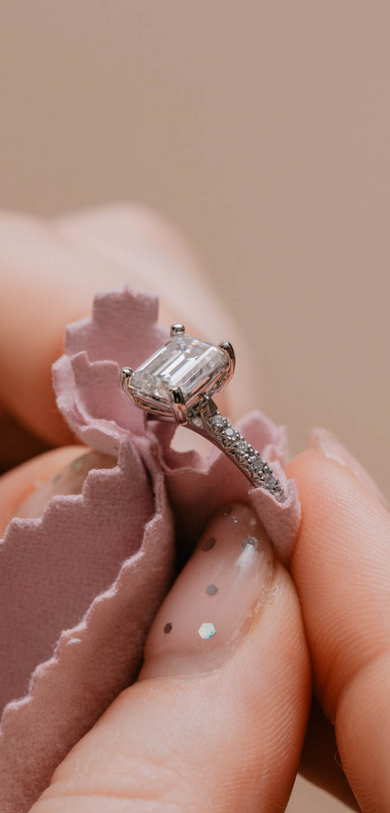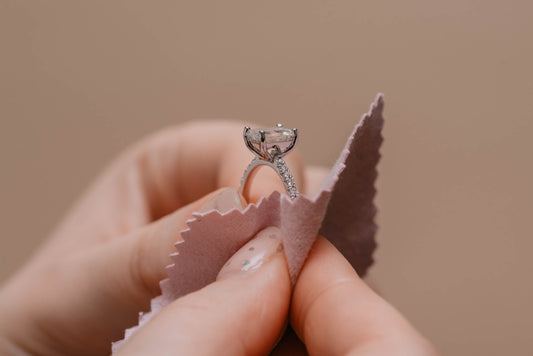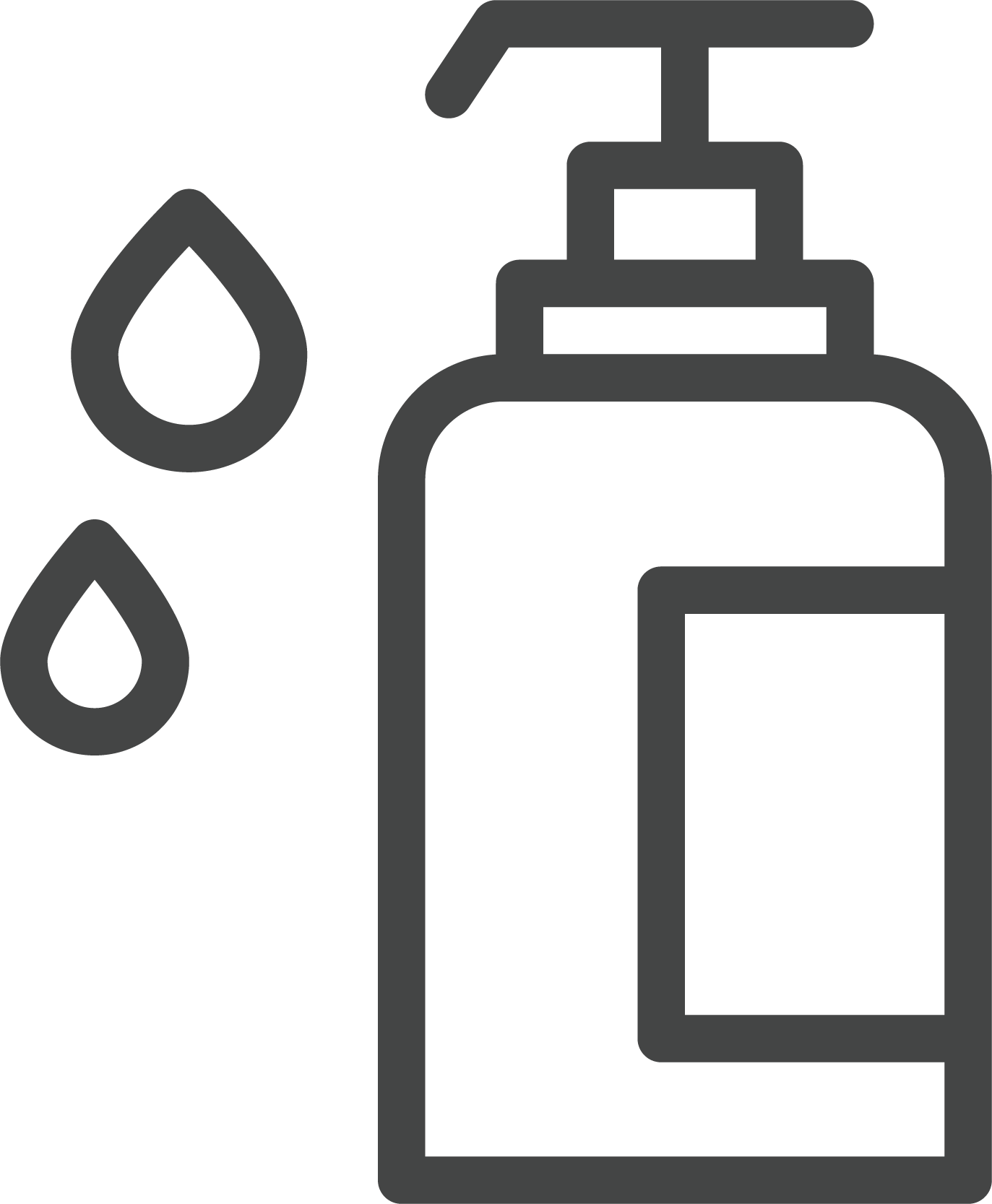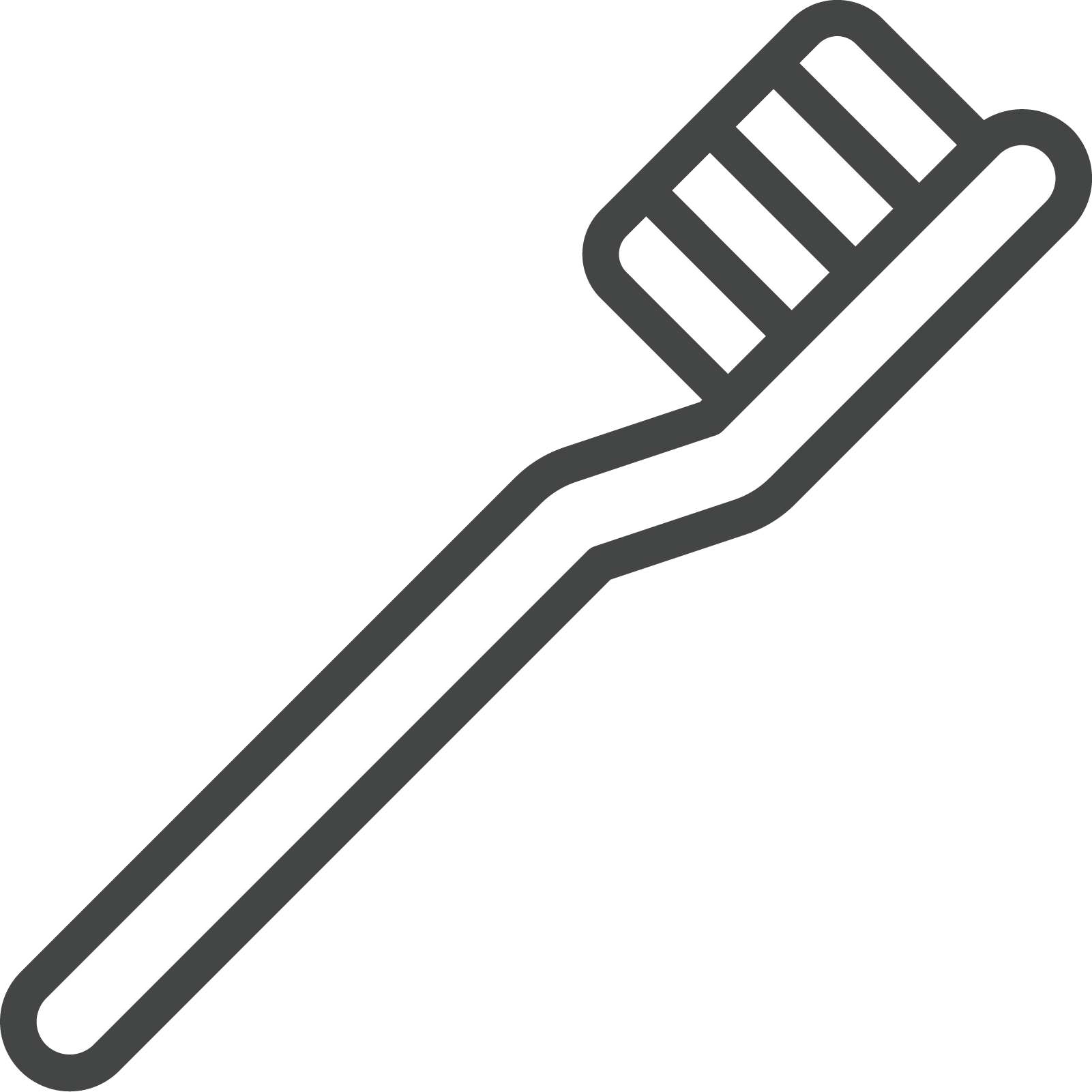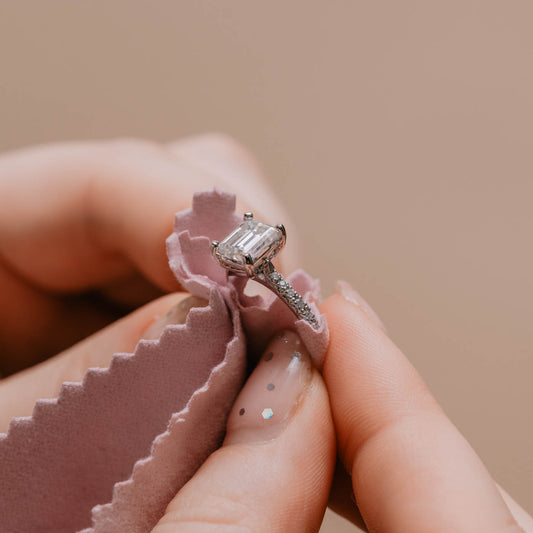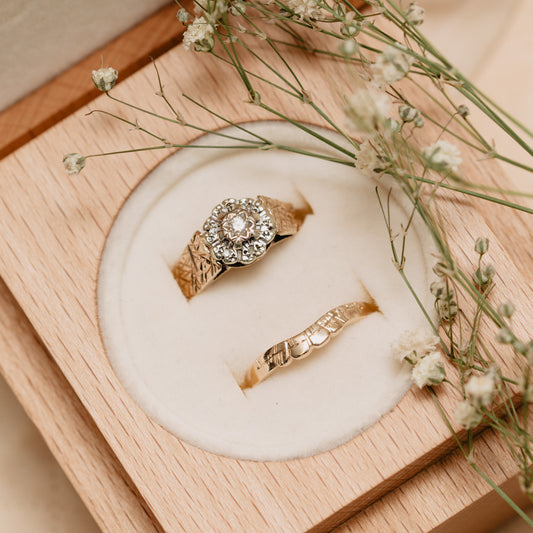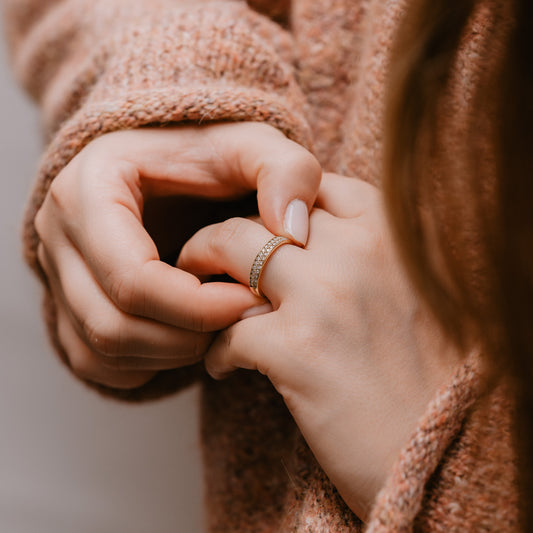
Though regular wear, claws can be knocked and this may cause them to move and release tension from the stone, causing the stone to move in its setting. Lightly tap the stone whilst holding it to your ear to make sure there's no movement. If there is, don't stress, we can easily tighten them in our workshop.

Avoid contact with any harsh chemicals such as cleaning products and beauty products such as creams. Harsh chemicals can cause damage to your jewellery and cream can clog up the setting, causing the stones to look lifeless.

Store in your Ethica Diamond jewellery box when not wearing to avoid potential damage. If you have a ring, make sure you remove it by the band, not pulling at the setting, as this part of the ring is more fragile.

We recommend removing your jewellery where possible when cleaning using swimming facilities or going in the sea. Get in the habit of removing your jewellery during any water-based activity and your jewellery will thank you for it!

Whether you’re heading out on a mountain bike ride, a spot of gardening or using the gym - our advice is simple. Take off your ring! You’ll be glad that you do.

Regular house insurance policies usually offer cover on valuable items, but they often need to be added separately, so be sure to read your terms. Alternatively, we recommend, TH March, an insurance company who specialises in jewellery.
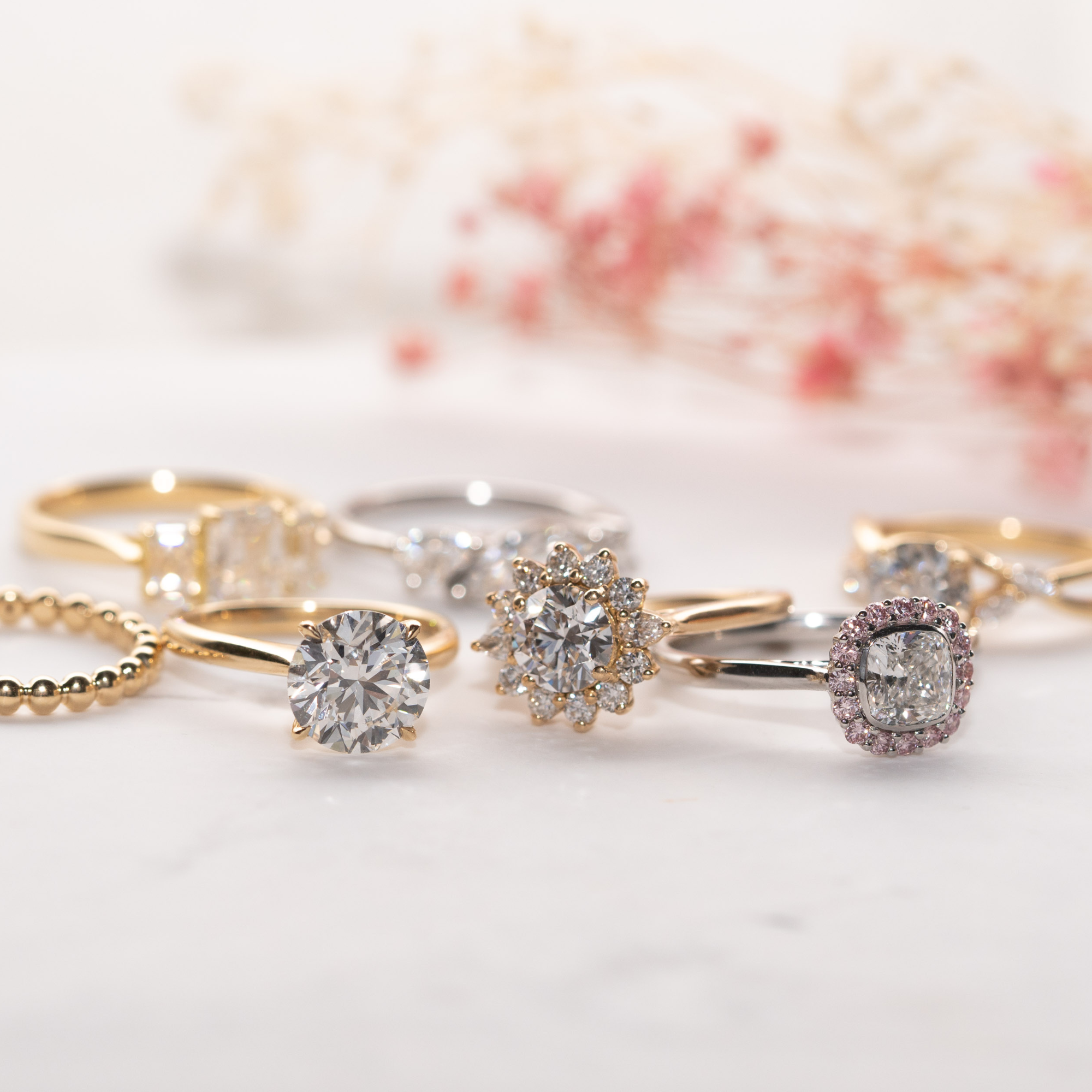
Things To Consider
- Wear rings of a the same karat (gold) together, e.g. your wedding and engagement ring, to avoid one wearing the other down over time.
- 18k gold is a perfect alloy which balances lustre with durability for everyday wear. However, it is still softer than platinum and care should be taken not to scratch or knock it.
- Gold should be cleaned regularly in order to maintain its beauty. Gold does not like chlorine or bleach so be aware of this when in a swimming pool or hot tub.
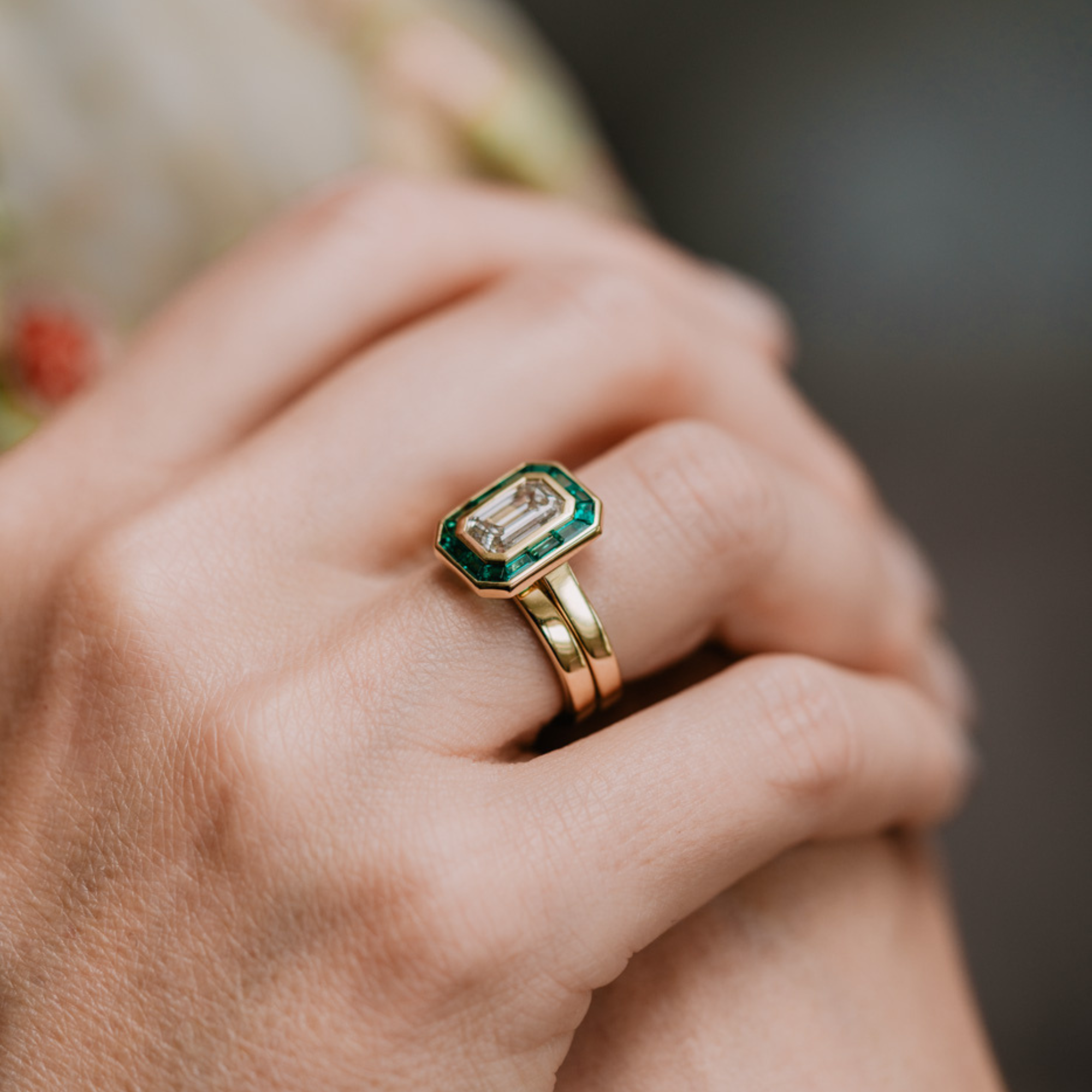
- Gemstones such as Sapphires and Rubies are very durable and can be worn and cared for with ease. Softer gemstones such as Morganite, Emerald and Aquamarine require a little more care – they can be worn and enjoyed daily, with a little extra attention. When considering a gemstone for your fine jewellery, we recommend a Mohs rating of 7 or more.*
- We advise that you don’t wear two diamond rings together on the same finger as diamonds are susceptible to scratching each other.
* The Mohs scale of mineral hardness ranges from 1-10 and measures a mineral’s resistance to scratching. Diamond is the hardest mineral with a rating of 10, and sapphires are 9, making both of these minerals ideal for everyday wear.

Worldwide Cover For Your Jewellery
We’re thrilled to partner with TH March, jewellery insurance specialists since 1887.
Protect your precious pieces against accidental damage, loss, and theft with worldwide coverage and no excess on claims. Repairs or replacements will be handled by our team whenever possible.
Get a free quote from TH March
Call: 01822 668 000
Visit: www.thmarch.co.uk
Please quote this reference: AE110T
Our Maintenance Services
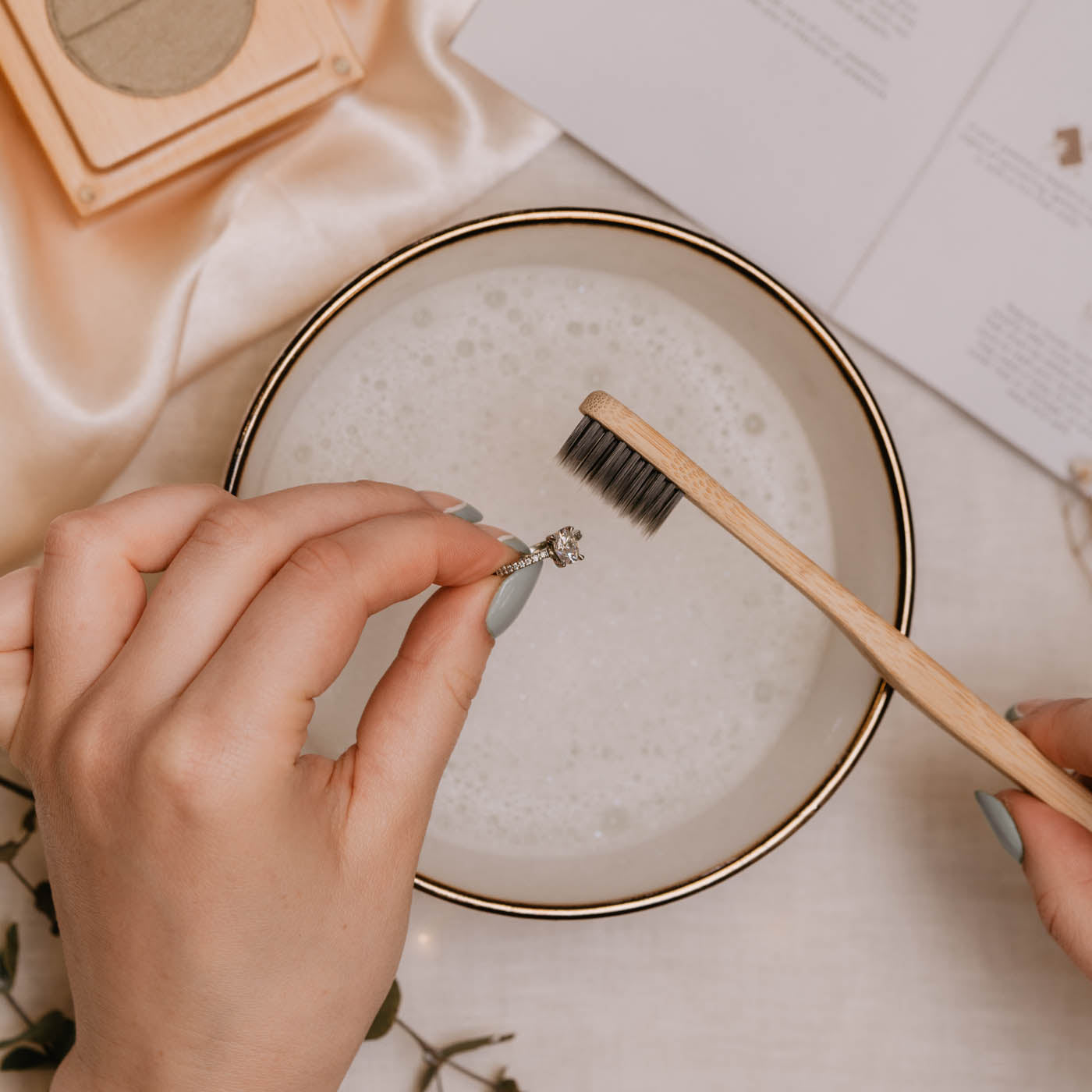
FAQs
Does my fine jewellery need professional maintenance?
if you or your loved one wears jewellery regularly (such as an engagement ring), it’s a good idea to have it professionally maintained to check the stones are secure, to polish scratches and scuffs out of the metal, and deep clean any small diamonds to restore the shine and brilliance. We offer an Annual Maintenance Service to help you keep your jewellery looking its best.
Should I remove my jewellery regularly?
It is strongly advisable to remove your engagement ring and wedding band when doing chores around the house, during exercise or other outdoor activity. It is a common misconception that you can wear yourrings all the time and they will last forever, but this is simply not true. If you rarely or nevertake them off, it exposes them to a lot of wear and tear, putting them at high risk of needing regular repairs over time. Fine jewellery like delicate engagement rings set with lots of small stones in a halo or on the shoulders and diamond set wedding bands, should be removed , cleaned and checked regularly.
How do I care for my gold jewellery?
it before swimming.
Is gold jewellery durable?
The purity of gold is measured in karats; 24k is pure gold and any carat below this is gold mixed with other alloys.
24k gold is very soft so jewellers usually use 18k or 9k gold as the mixed alloys make the metal much stronger for setting stones, adding design details and make them suitable for wearing.
18ct gold is made with 750 parts of gold and 350 parts of alloy or other metals. 9k gold is made with 375 parts of gold and 625 parts of alloy or other metals which makes it the most durable gold jewellery, suitable for daily wear and most resistant to scratching.
By mixing different colour alloys with the gold, you can achieve different colour gold which is how we create white gold and rose gold. By definition, it isn’t possible to find 24k white or rose gold as it isn't naturally formed.
Can I wear a platinum ring if I have sensitive skin?
Because of its purity, platinum jewellery is hypoallergenic, therefore ideal for sensitive skin.
Does platinum scratch?
All precious metals can scratch, and platinum is no exception. However, the scratch on platinum is merely a displacement of the metal and none of its volume is lost. Over time platinum develops a natural patina, which many people find just as attractive as a polished finish.
How do I avoid damaging or chipping my diamond?
Diamond is the hardest mineral we know of, but that doesn't make diamonds, lab or natural, unsusceptible to damage. Although they may be harder to damage, they can still be scratched or chipped, similar to semi precious gemstones. Make sure you take care when wearing and storing your jewellery and avoiding doing strenuous activities whilst wearing your precious pieces.
